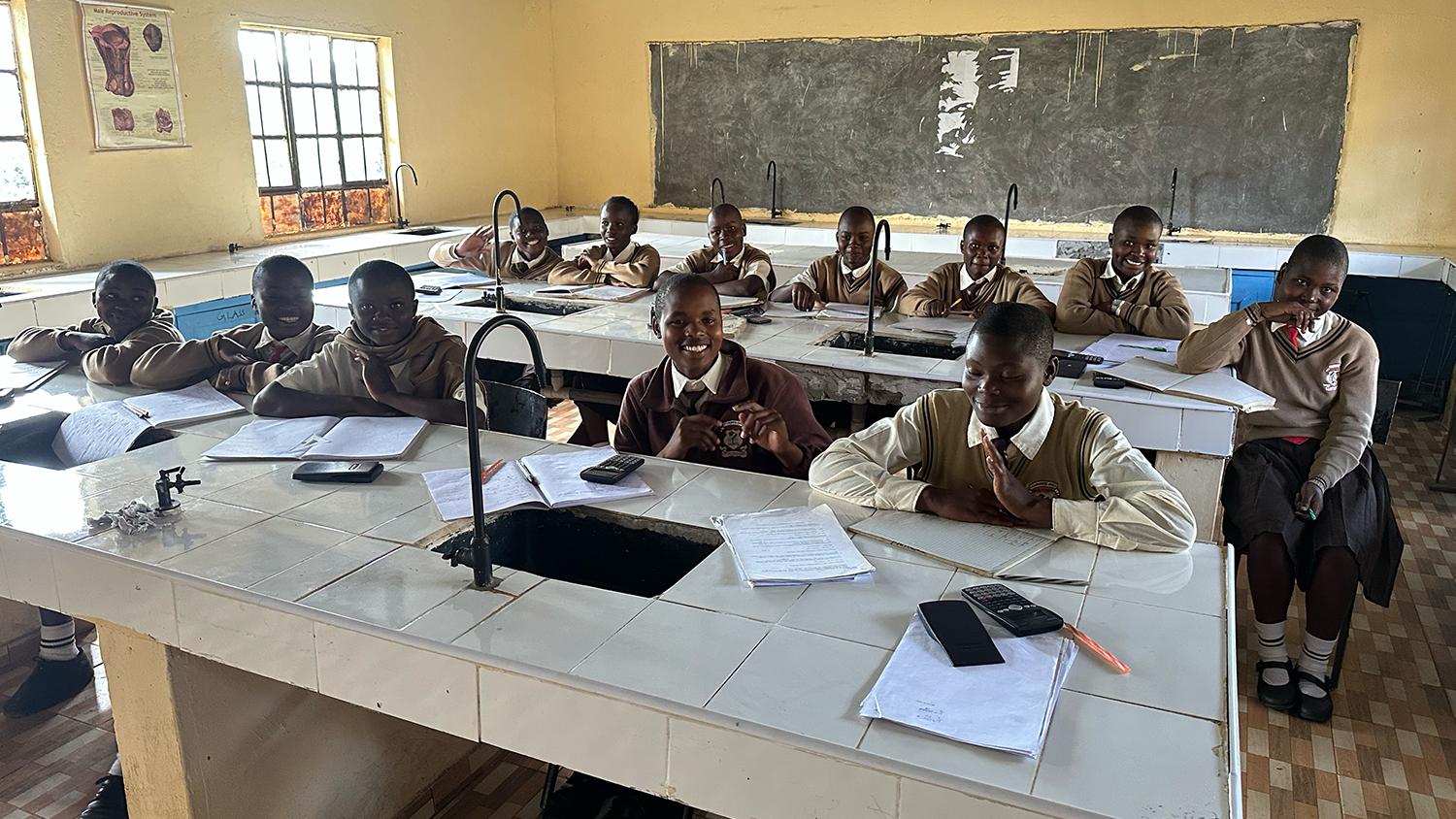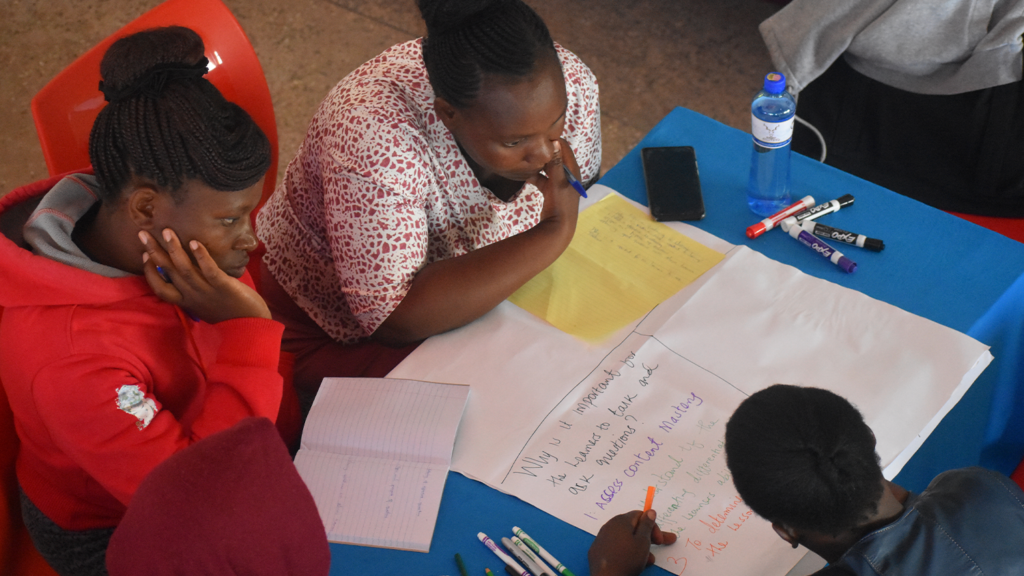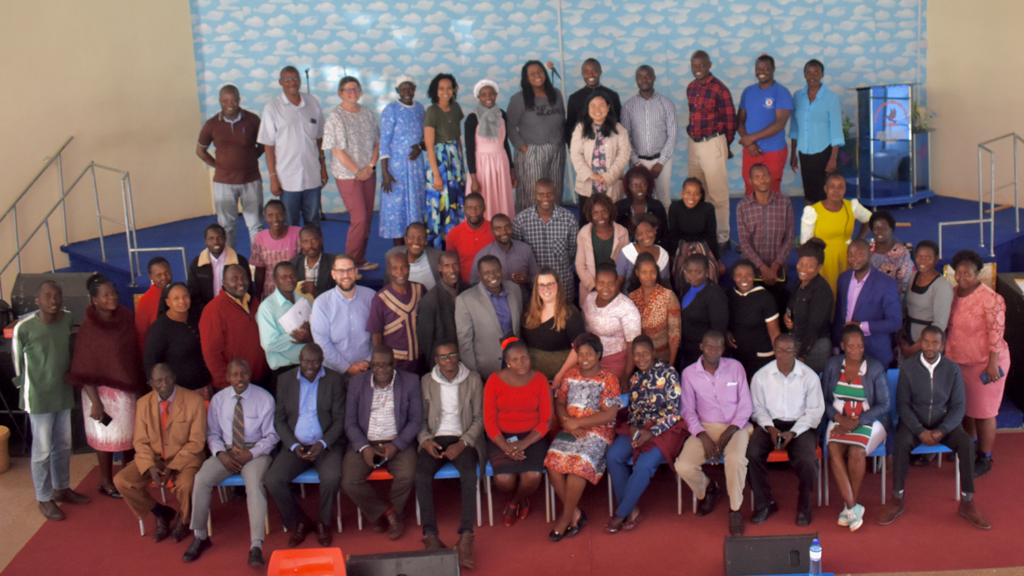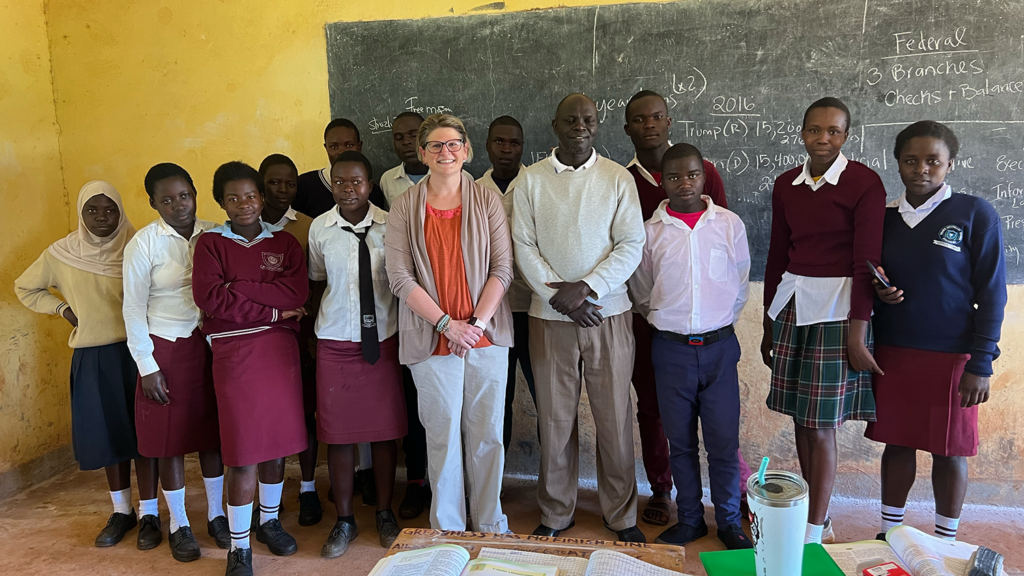Doctoral Students Gain New Appreciation for Teaching While Delivering Professional Development to Kenyan Teachers

Although Kenya is thousands of miles away from North Carolina, NC State College of Education doctoral student Alicia Whitley noticed several similarities between the teachers in both places.
Despite the fact that most teachers did not have resources that are considered staples in classrooms, the concerns they expressed for the students in their rural classrooms were the same as the concerns Whitley saw herself and her fellow educators expressing at home.
“They worried about students who got their only meal from school and students who may not be able to complete assignments at home. They also worried about keeping kids in school, addressing their mental and physical health and encouraging them to finish their education,” Whitley said.

Whitley was one of three College of Education doctoral students who traveled to Kenya with their advisor, Dr. Michelle Falter, and Assistant Teaching Professor, Dr. Matt Reynolds, in May. The group led professional development activities for more than 80 teachers with the goal of helping them adapt as they change their teaching methods as a result of the Kenyan government’s shift to a Competency-Based Curriculum (CBC).
The training helped Kenyan educators find strategies to address curriculum requirements like critical thinking, citizenship, self-learning and digital literacy given the constraints they face due to limited technology and resources as well as large class sizes of up to 120 students.
One of the key components to the strategies shared in the professional development sessions, Reynolds said, was to focus on things that would cost little to no money to implement.
“Good teaching comes from understanding your students and their needs and trying to meet those needs the best you can. This professional development got back to the grassroots essence of teaching rather than focusing on things like how much innovative technology can be added into a lesson to make it super captivating,” he said.

Doctoral student Janell Miller thought she knew first-hand about the struggles of trying to reach students in a school with limited resources. When she was a first-year teacher, Miller taught in a classroom with no access to technology, including no whiteboard and no classroom projector; however, this was nothing compared to the struggles faced by the teachers in Kenya.
Similar to Reynolds, her time in the country reminded her that, at its core, teaching is not about the materials you have, but the willingness to do your best to reach students by whatever means you have available to you.
“Being in Kenya reminded me that learning only requires willing humans,” Miller said. “The teachers were so brilliant and such strong content experts. The class sizes were so large and the classrooms were not that big, but still, great things were happening. The teachers were motivated and had a strong desire to engage their students.”
This is the fourth year Falter, who was an associate professor in the College of Education at the time of the trip, has traveled to Kenya for professional development opportunities and the first year that she has led the trip herself. It is also the first year that she had an opportunity to bring three doctoral students on the trip – Whitley, Miller and Beth Shaver – thanks to funding from her DELTA Faculty Fellowship and the Office of Global Engagement.
“It was really rewarding to watch my colleagues and our doctoral students shine as they planned and delivered their own professional development sessions and built relationships with Kenyan teachers,” said Falter, who is now the Director of Teacher Education at St. Norbert College in Wisconsin. “I know they learned a lot in a short amount of time and to be able to witness the beauty and generosity of Kenya and its people through their fresh eyes was so lovely.”

While in Kenya, Shaver worked on helping teachers learn strategies focused on using technology for student-centered learning despite the fact that not all classrooms were equipped with electricity. To circumvent this, the strategy was designed to use only a smartphone, paper and writing implements. She also taught a lesson on the U.S. Constitution and government during a school visit, and worked with teachers in small groups to refine their skills.
“Having small group conversations about the strategies being introduced and talking about how implementation might look in their school settings and learning environments was powerful,” Shaver said. “It is my sincere hope that each teacher walked away from my lessons with a new idea they could implement or a spark of inspiration for a new direction they could go with their students.”
The experience, all three students said, has inspired them to not only continue to work with teachers internationally, but to use what they have learned in Kenya to inform their future research as doctoral students and scholars.
“One of the reasons I left the classroom was because I was interested in learning more about teaching pre- and in-service teachers,” Whitley said. “This was a fantastic opportunity to observe classrooms that were different from those I had been in, contribute to ongoing research, collaborate internationally and design professional development for some truly fantastic teachers. All of these experiences gave me an opportunity to flex the muscles I hope to use in my future career.”
- Categories:


